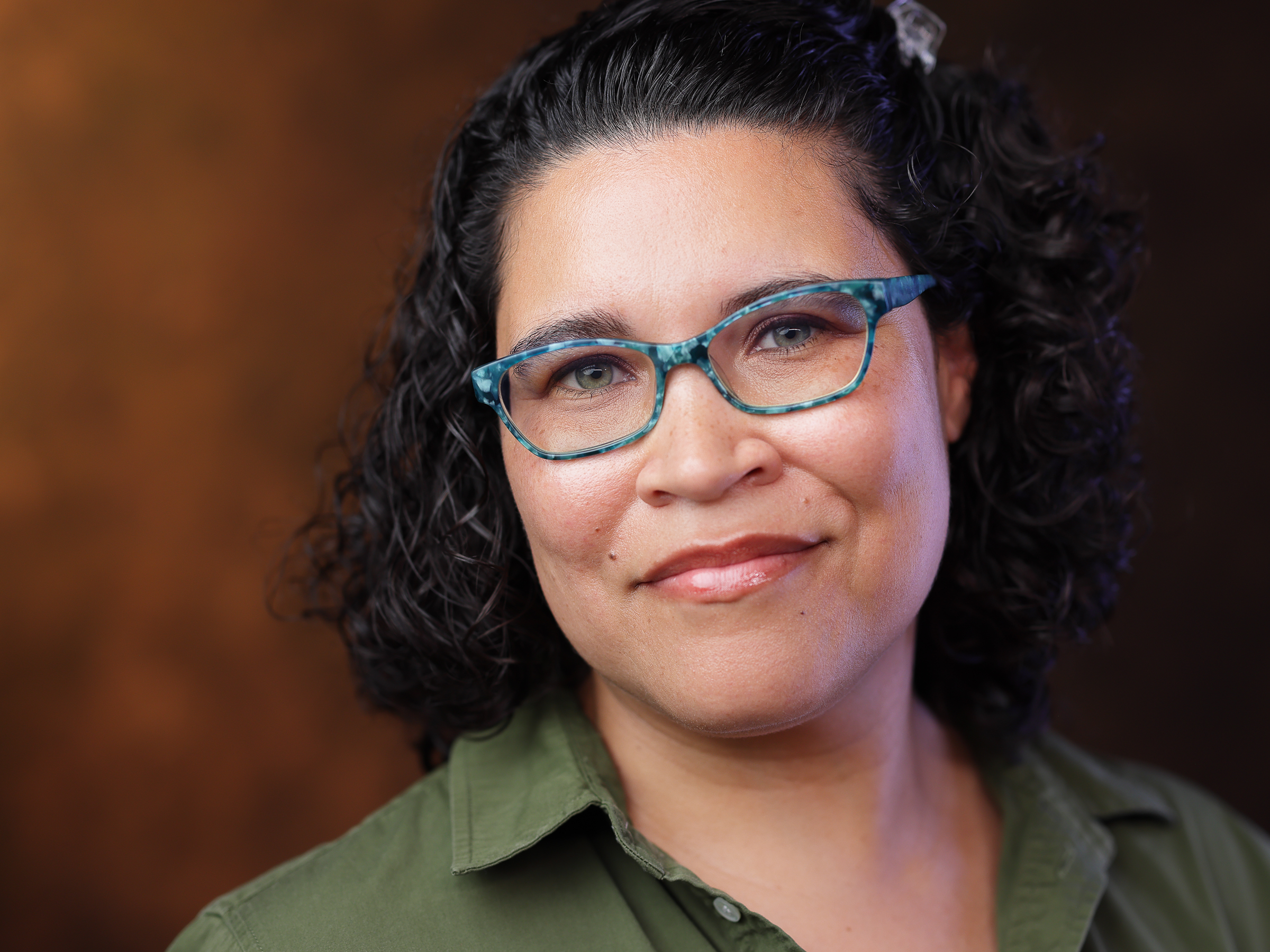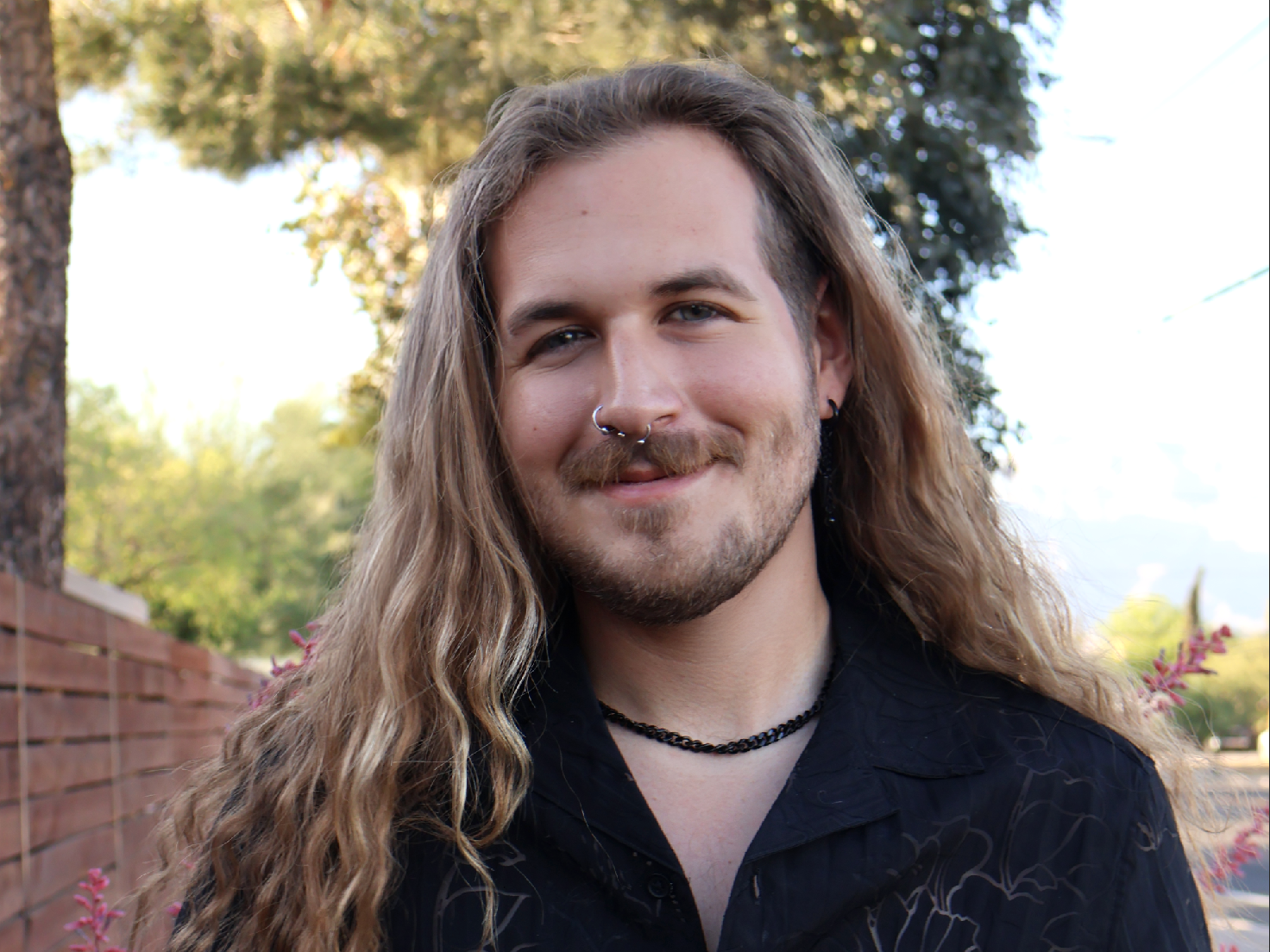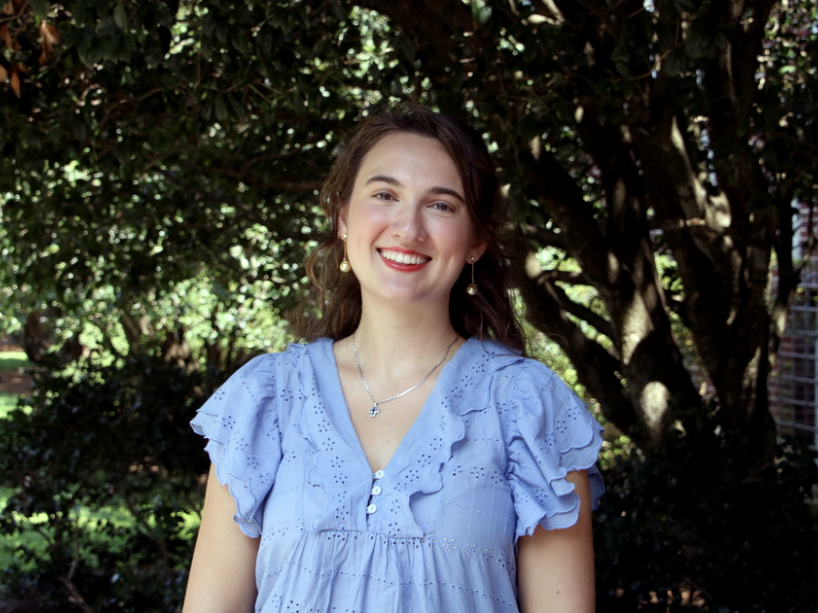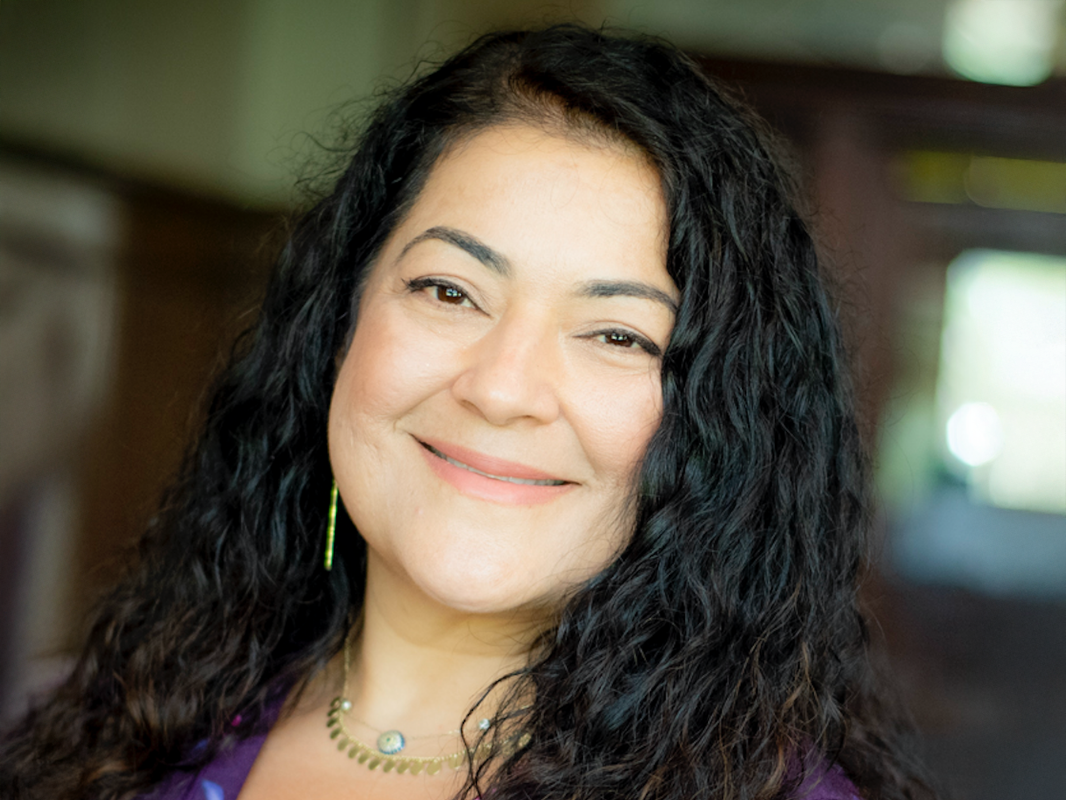New Orleans Film Festival Recognizes Tulane Talent
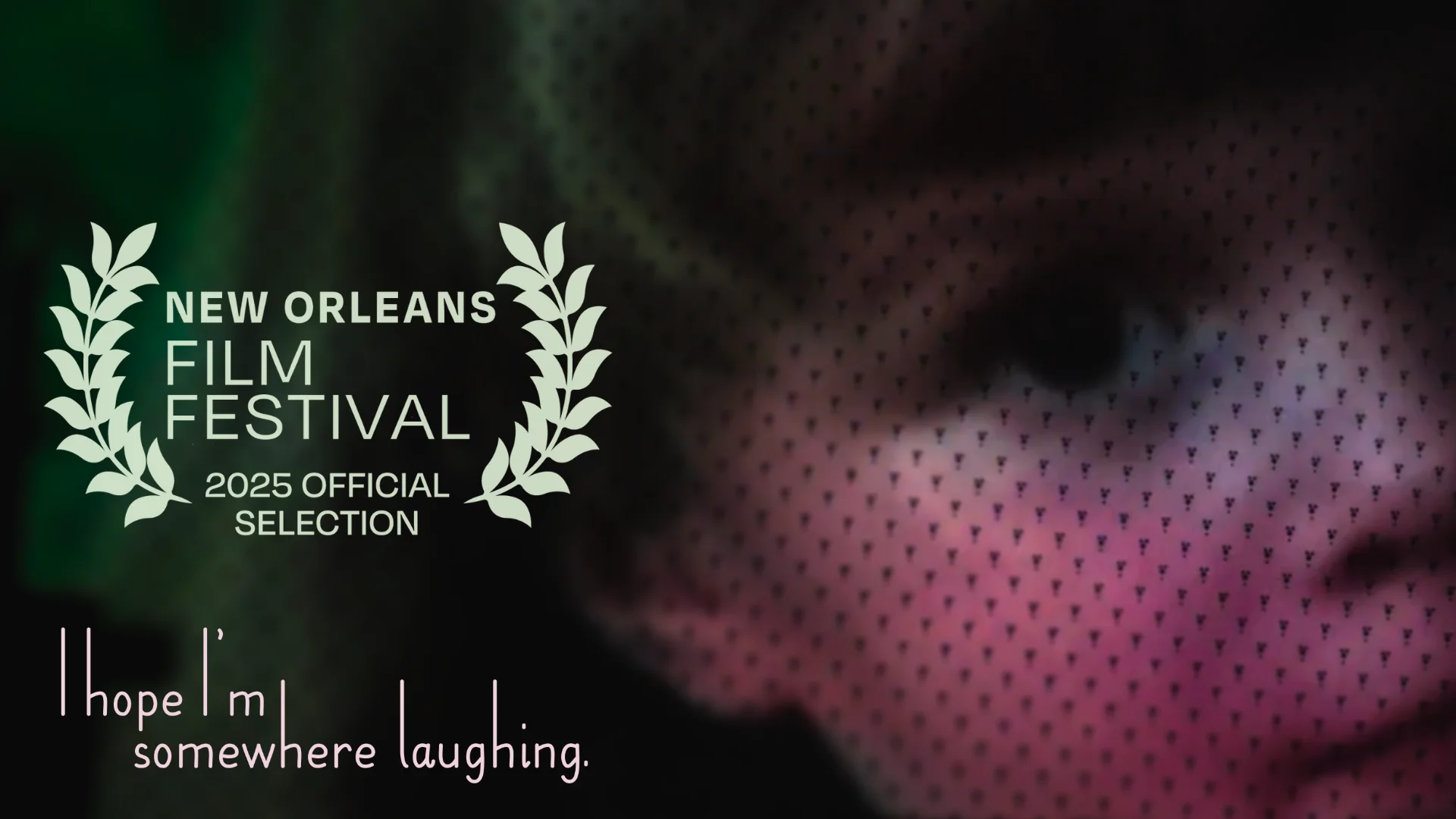
Entering my senior year as a Tulane School of Liberal Arts Digital Media Practices (DMP) student, I vividly remember questioning during my freshman year if the filmmaking opportunities I yearned for would be available to me at Tulane. Now, with my second acceptance into the Oscar-qualifying New Orleans Film Festival (NOFF) for my recent film, I hope I’m somewhere laughing., I feel incredibly grateful for how the School of Liberal Arts has empowered my voice and artistry as a filmmaker.
I hope I’m somewhere laughing. is a narrative-documentary hybrid short film that combines archival media and fictional scenes to tell the story of a young woman, Kate Porter, who returns to her family home to pack up her childhood room. Filmed the summer of 2024 with two of my closest friends from high school and DMP alum Zoe Allen (SLA ‘25), the film originated from the desire to create something at Kate’s beautiful home in St. Francisville, LA. We originally found the rural house perfect for a horror film; what we ended up creating made that house an entire character on its own.
That same summer, Kate’s parents began moving out of the house, and, in the process, uncovered old home movies of her and her sister as toddlers. The movies, captured on grainy camcorders with foggy audio, told stories of fairies, fantastical worlds, and pure innocent whimsy. My viewing of these movies collided with a strange emotional period, a time of intense reflection on how I had grown up and changed. The effervescence that once poured out of my mind in my childhood now felt drained and faded, and, from this, the central idea of the film was born: turning my friends’ and my shared emotions into a narrative that interspersed real archival footage of Kate with new scenes filmed using the same locations and story elements seen in the home movies.
As I reflect on the film, it truly represents the cathartic value filmmaking has for me. I attribute the film’s ultimate message of self-love for one’s present self, which sprouted from unscripted narration between Kate and our friend Haylee, with having healed me of the very feelings that birthed the film in the first place. The words in the film, “I really wish that you could see yourself the way that I see you,” replay in my mind every time I need to hear them. Writing with mental health and emotional vulnerability in mind has always been daunting, but the wonderful film community I have found at Tulane and in New Orleans has empowered me to use film as a therapeutic vessel. I will never forget turning around after I hope had premiered at the 2025 Tulane Student Film Festival and seeing the sea of faces touched by my work — a sight that reminded me why I chose to pursue filmmaking in the first place.
Kate shared with me that “This film encapsulates more than just my childhood. It truly is an authentic display of what it’s like to come of age as someone who is not completely sure of themselves yet. Witnessing my own vulnerability unfold on camera for the first time completely altered my self-perception. I find myself at a loss for words to express just how thankful I am to this film.”
I’m sure I blew Kate’s eardrums out when I called her after learning that I hope had been accepted in competition at the New Orleans Film Festival. I was equally excited to see that Olive Wheadon (SLA ‘25), one of my former classmates, had her production T.Osborne selected for the competition.
Of her piece, Olive told me, “T.Osborne is my ode to New Orleans, and having the film accepted into NOFF feels like a full-circle moment and an incredible honor. I hope you can experience the magic of New Orleans through Terrance’s art the way I do. This project was a true cross-campus collaboration between Tulane, Loyola, and UNO — with art as the bridge. I’m deeply grateful for the extraordinary crew who brought it all to life.”
The Tulane presence at this year’s festival is unprecedented, with our two student films and three films by School of Liberal Arts faculty in competition. DMP Professors Duane Prefume, The Inquisitor, Monica Payne, Mimi, and Casey Beck, Loves to Dance, will all have showings during the event.
The DMP faculty, as well as organizations like Green Wave Films, the Tulane Student Film Festival, and Entertainment Business Network, have transformed Tulane into a place where student filmmakers can discover their voice and be empowered to infuse their works with personal honesty. Without the collective trust in the film community here, I would have probably never made and shared I hope I'm somewhere laughing.
Tulane Spotlights at New Orleans Film Festival
The Inquisitor
Duane Prefume, Professor of Practice
Saturday, October 25
4:15 p.m.
Black Box Theater at the Contemporary Arts Center
Loves To Dance
Casey Beck, Professor of Practice
Saturday, October 25
6:30 p.m.
Warehouse Theater at the Contemporary Arts Center
T.Osborne
Olive Wheadon, SLA ‘25
Saturday, October 25
6:30 p.m.
Warehouse Theater at the Contemporary Arts Center
I hope I’m somewhere laughing.
Cameron Brown, SLA ‘26
Saturday, October 25
7:15 p.m.
The Broad Theater 4
Mimi
Monica Payne, Associate Professor
Sunday, October 26
4:45 p.m.
Prytania Theatre
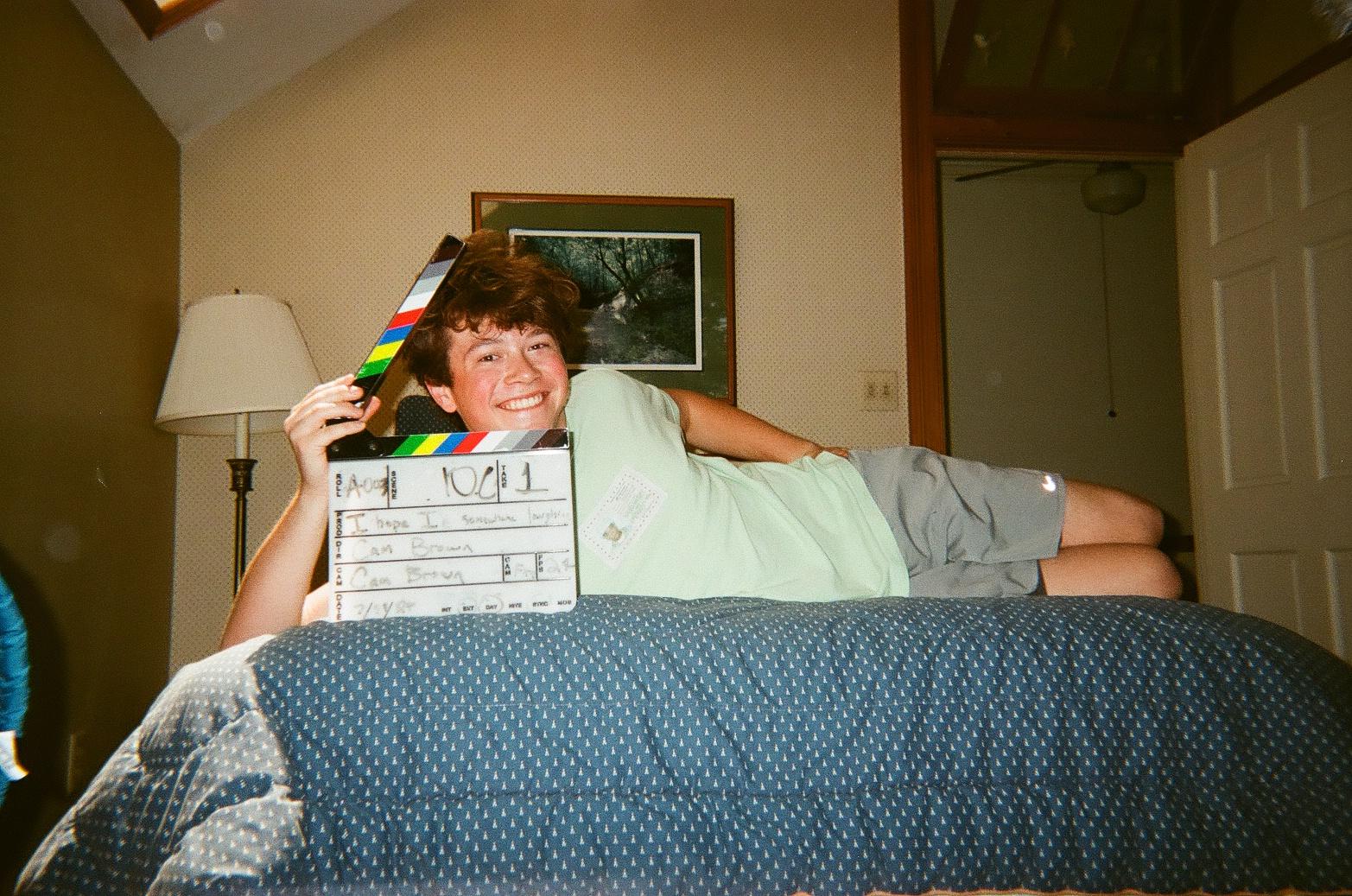
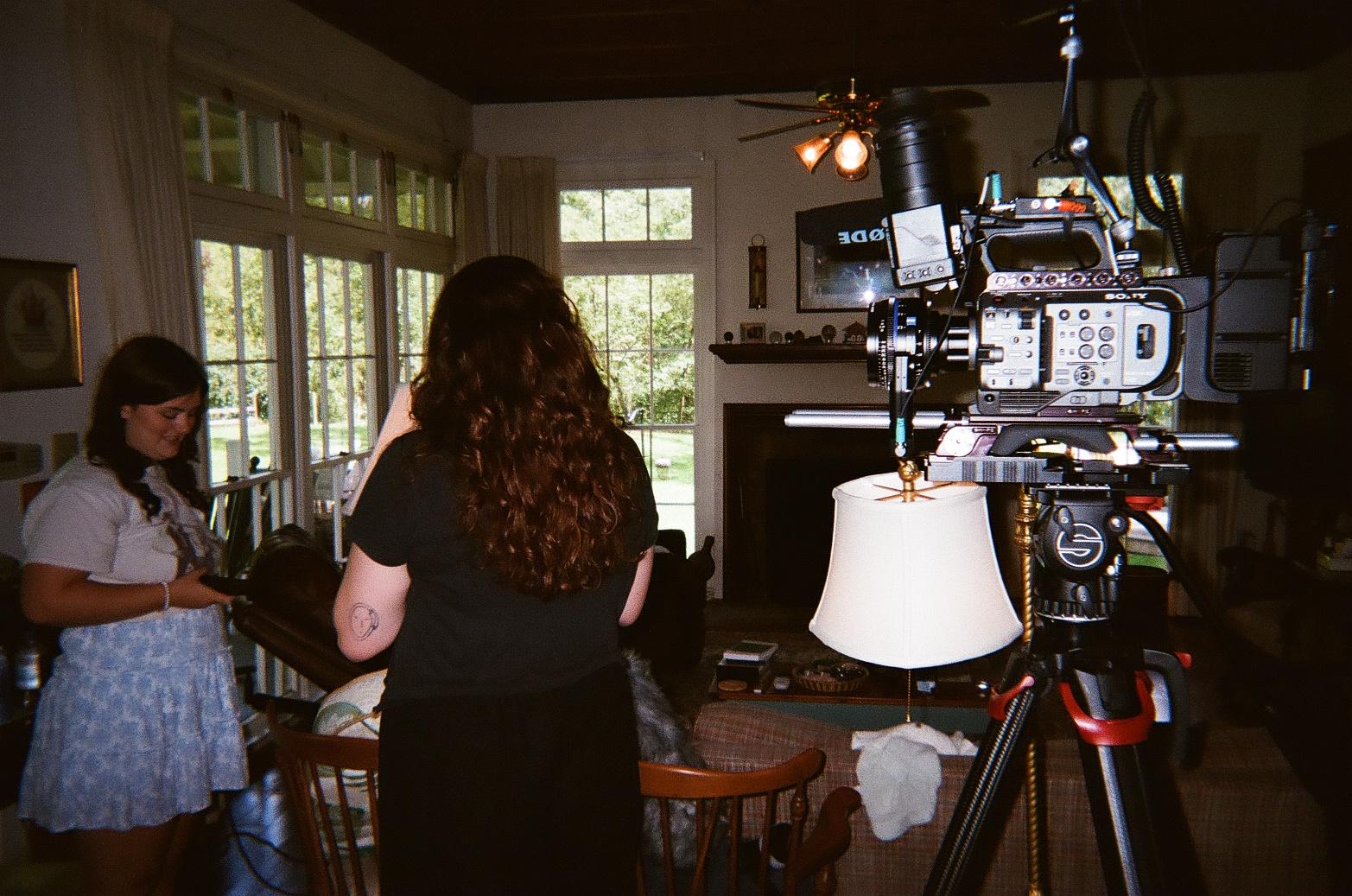
Cameron Brown (SLA ’26)
Digital Media Practices and English Double Major
President, Tulane Green Wave Films Club


